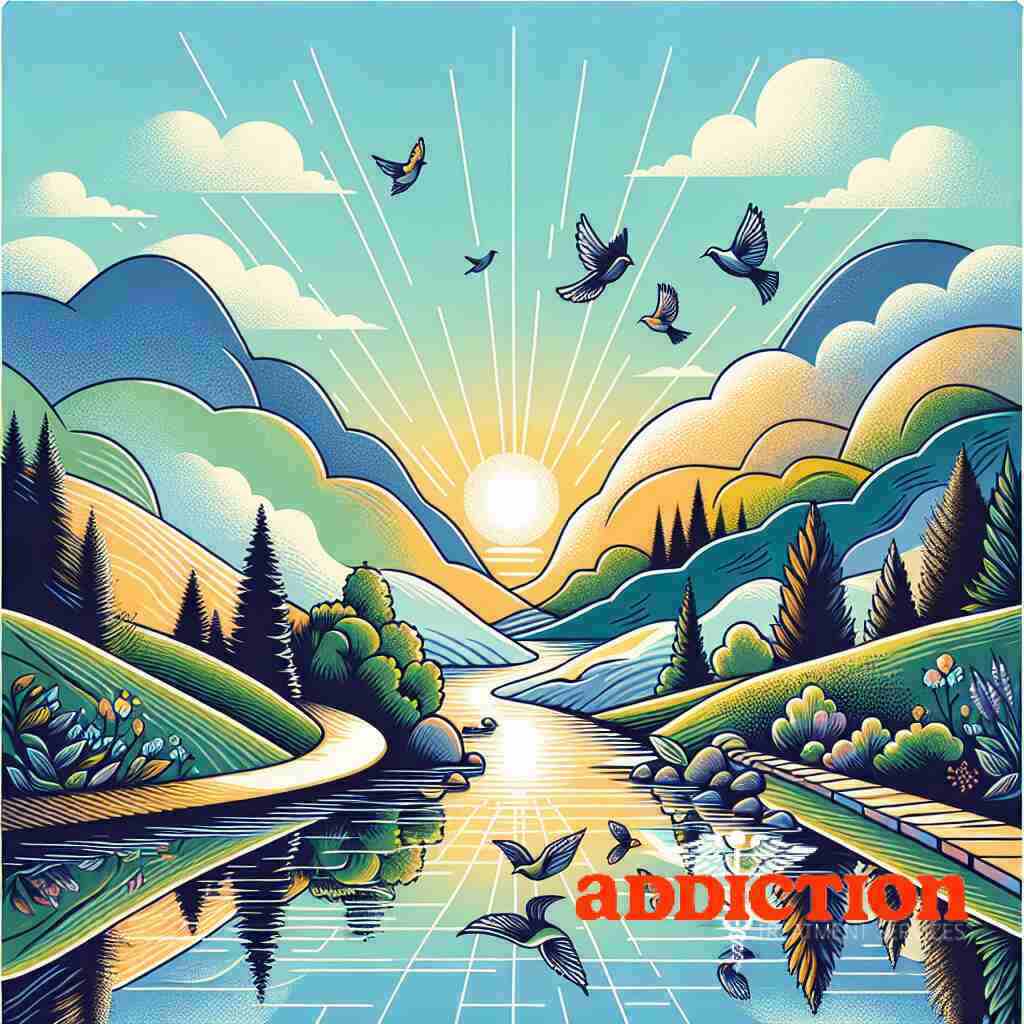 Posted On: 10/01/2024
Posted On: 10/01/2024A New Path: Understanding the Role of Mental Health Services in Recovery
The Intersection of Mental Health and Substance Use Disorders
Mental health and substance use disorders often intersect, complicating the recovery journey for many individuals. People struggling with addiction frequently experience mental health challenges such as anxiety and depression. These conditions can exacerbate substance abuse, creating a cyclical pattern of dependence and emotional turmoil. Recognizing this intersectionality is vital for developing comprehensive treatment strategies. Mental health services play a crucial role in identifying and addressing these intertwined issues. By exploring mental health services, individuals can gain insights into how their mental and emotional health ties into their addiction.
Why Mental Health Support is Crucial for Recovery
Mental health support is a cornerstone of effective recovery from substance misuse. Providing psychological support can strengthen individuals’ resilience and coping mechanisms, ensuring they’re equipped to handle withdrawal symptoms and stresses of everyday life. Mental health services not only address immediate psychological needs but also foster long-term mental well-being. This holistic approach can empower individuals to make healthier choices and sustain their recovery process. Additionally, mental health support can enhance relapse prevention strategies, providing a solid foundation for lifelong recovery.
Introduction to Dual Diagnosis Treatment
Dual diagnosis treatment is a specialized approach designed to tackle both substance use disorders and concurrent mental health conditions. This method acknowledges the complex relationship between these issues, offering integrated care that targets both areas simultaneously. For individuals in places like Michigan, dual diagnosis care is increasingly accessible, providing customized treatment plans. Dual diagnosis treatment incorporates a range of services, including therapy, medication management, and behavioral health services, ensuring comprehensive care. By addressing both mental health and addiction issues, individuals are more likely to achieve sustained recovery and improved quality of life.
Comprehensive Care: The Spectrum of Mental Health Services
Behavioral Health Services Explained
Behavioral health services encompass a wide range of interventions that are essential for treating substance use disorders and mental health conditions. These services often include counseling, psychotherapy, and exploring behavioral health services, which can significantly aid individuals in understanding their behaviors and developing healthier coping mechanisms. Trained mental health professionals play a pivotal role in delivering these services, offering tailored support to meet each individual’s needs. Through targeted therapy sessions and behavioral interventions, patients can gain better insights into how their thoughts and emotions contribute to their substance use patterns. As these services address the psychological aspects of addiction, they pave the way for a more successful recovery journey.
The Role of Medication-Assisted Treatment
Medication-assisted treatment (MAT) is a critical component in the landscape of addiction recovery, providing individuals with a pharmacological bridge to sobriety. MAT combines medications, such as methadone or buprenorphine, with counseling and behavioral therapies, offering a “whole-patient” approach. This method effectively manages withdrawal symptoms and reduces the risk of relapse by normalizing brain chemistry and blocking the euphoric effects of drugs. Addiction treatment centers emphasize MAT as it allows individuals to stabilize their lives and engage more effectively in therapy. By integrating MAT into addiction treatment programs, patients can experience a decrease in the physical and psychological cravings that often derail recovery efforts.
Holistic Treatment Options for Mental Health
Holistic treatment options provide a comprehensive approach to mental health and addiction recovery, addressing the person as a whole rather than focusing solely on symptoms. These methods often include alternative therapies such as yoga, meditation, acupuncture, and nutritional counseling. Through holistic treatment methods, individuals are encouraged to explore and nurture all aspects of their well-being, including physical, emotional, and spiritual health. Holistic practices can help reduce stress, enhance mental clarity, and improve overall life balance, which are essential for sustaining recovery. These methods complement traditional therapies by reinforcing the patient’s ability to manage stressors and maintain a healthy lifestyle, contributing to long-term recovery success.
Intensive Outpatient Program vs. Residential Treatment
Understanding the differences between an intensive outpatient program (IOP) and residential treatment is essential for selecting the right recovery path. IOPs offer flexibility, allowing individuals to live at home while attending treatment sessions multiple times a week. This approach is beneficial for those who have work or family commitments but still require structured treatment. On the other hand, residential treatment centers provide a more comprehensive, immersive environment where patients receive 24/7 support. This can be ideal for individuals needing a higher level of care, away from distractions and triggers. Both options offer unique benefits, and choosing between them often depends on the severity of the addiction, personal preference, and the need for continued support.
Detoxification Services and Mental Health
Detoxification services serve as a critical first step in the recovery process, addressing the physical dependencies associated with substance use disorders. These services safely manage the acute physical symptoms of withdrawal, with medical supervision to prevent complications. Understanding the intersection of detoxification in drug rehab and mental health is vital, as detox sets the foundation for further therapeutic interventions. Mental health services are integrated into detox programs to support the psychological aspects of withdrawal and provide education on coping strategies. By combining detox with comprehensive mental health care, individuals are better prepared to engage in subsequent treatment programs, increasing their chances of a successful recovery.
Navigating the Recovery Process: Integrating Mental Health Services
Early Intervention and Its Impact on Recovery
Early intervention plays a pivotal role in facilitating successful recovery from substance use disorders. Recognizing and addressing warning signs at the onset can prevent the escalation of addiction, allowing for more manageable treatment approaches. Individuals benefit when mental health services are incorporated early, offering support for both potential substance dependency and underlying mental health issues. This proactive strategy not only mitigates the severity of withdrawal symptoms but also enhances the likelihood of sustained sobriety. By establishing a strong foundation through early intervention, the recovery process becomes more navigable, emphasizing personalized care and timely support.
Outpatient Treatment: Flexibility and Support
Outpatient treatment offers a flexible alternative for individuals seeking recovery while maintaining daily commitments. This form of treatment enables patients to live at home, balancing responsibilities with structured therapeutic sessions. Support services often include counseling, medication-assisted treatment, and behavioral health interventions tailored to address the unique needs of each individual. Such a holistic approach allows patients to integrate relapse prevention strategies into their daily lives. By choosing outpatient care, those on the recovery journey can benefit from continuous support while gradually transitioning back into routine environments.
Residential Treatment: Safe Havens for Recovery
Residential treatment centers act as safe havens, providing a controlled environment where individuals can focus intensely on their recovery journey. Surrounded by professional support around the clock, residents can distance themselves from triggers and harmful influences. Guide to Selecting Sober Living Homes Near You. This immersive approach fosters an environment conducive to healing, with a strong emphasis on comprehensive treatment programs tailored to address both substance use and mental health disorders. Among the myriad of benefits, residential facilities emphasize intensive therapy, group support, and skill development essential for long-term recovery success. Such environments create a foundation where individuals achieve a deeper understanding of their disorders, paving the way for lasting change.
Understanding and Managing Withdrawal Symptoms
Effectively managing withdrawal symptoms is a critical component of the recovery process. These symptoms, ranging from mild discomfort to severe physical and mental distress, require careful attention and management. How does Addiction Affect the Brain?. Understanding withdrawal signs is the first step in ensuring that individuals receive appropriate support and medical care during detoxification and beyond. Mental health services must be integrated into withdrawal management, providing psychological support alongside medical interventions. This dual approach helps individuals not only cope with physical symptoms but also prepare mentally for the ongoing challenges of the recovery process.
Relapse Prevention: Strategies and Support
Relapse prevention is fundamental to achieving long-term recovery from substance misuse. Effective strategies include identifying triggers, developing coping mechanisms, and maintaining a robust support network. Mental health services are essential in crafting personalized relapse prevention plans tailored to address each individual’s unique challenges. Integrating relapse prevention strategies into recovery regimens helps reinforce the skills necessary for sustaining sobriety. By focusing on continuous support and education, individuals can navigate through challenges and reduce the risk of relapse, ultimately fostering a resilient and lasting recovery.
Community and Support: Building a Lifeline
The Importance of Recovery Support Services
Recovery support services are indispensable in maintaining sobriety and fostering long-term recovery success. These services provide a network of care beyond initial treatment, ensuring individuals have access to ongoing assistance. Peer support groups, mentoring, and community resources play an integral role, offering emotional reinforcement and practical advice. By involving professionals who understand mental health professionals’ roles, these services create a supportive environment conducive to healing. This layer of support helps individuals navigate challenges and celebrate successes with others who understand their journey, making these services a cornerstone of recovery.
Involving Family Members in the Recovery Process
Including family members in the recovery process is vital as it helps rebuild trust and strengthens support networks. Family involvement creates a nurturing environment where open communication is encouraged, allowing for healing on a relational level. Through educational sessions and family therapy, relatives learn about addiction dynamics and effective ways to support their loved ones. What Are Some Treatment Options for Those That Are Addicted to Drugs?. This comprehensive approach aids in preventing relapse and reinforces the individual’s commitment to recovery. By fostering an understanding of family culture, the recovery process becomes a joint effort, enhancing the chances of long-term sobriety.
Exploring AA Meetings and NA Meetings for Sustained Recovery
AA Meetings and NA Meetings provide essential spaces for individuals seeking sustained recovery through peer support. These groups offer a structured environment where participants can share experiences and gain strength from shared struggles. Through the importance of AA Meetings and NA Meetings for recovery, individuals find accountability partners and mentors who aid in maintaining sobriety. The meetings encourage open dialogue and provide tools for dealing with triggers and setbacks-top 5 Recovery Apps for Addiction in 2024. By consistently attending these meetings, individuals build a robust support system that is crucial for long-term recovery success.
Top Sober Houses for Long-term Success
Sober houses provide a transitional environment where individuals can reinforce their recovery skills and establish stability. These residences offer a supportive community with rules aimed at maintaining sobriety while residents reintegrate into daily life-ultimate Guide to Rehab in New Jersey. By exploring top sober houses, individuals find environments that promote accountability and personal growth. This setting encourages the development of life skills, employment, and continued participation in recovery programs. The communal living aspect creates invaluable peer support, providing a strong foundation for individuals to thrive as they move towards independent, substance-free living.
Full Circle: Achieving Lasting Recovery
Overcoming Substance Misuse through Mental Health Services
Mental health services are instrumental in overcoming substance misuse, offering tools to address both psychological and physiological facets of addiction. By integrating therapies that focus on cognitive and emotional well-being, these services facilitate a comprehensive approach to recovery. Support in managing withdrawal symptoms, along with addressing the root causes of substance use, provides individuals with a robust framework for healing. Moreover, exploring mental health services ensures individuals have access to tailored interventions, promoting long-term sobriety. By focusing on personal growth and resilience, mental health services play a vital role in helping individuals navigate the recovery process and achieve lasting change.
The Role of Treatment Facilities and Addiction Treatment Centers
Treatment facilities and addiction treatment centers are the cornerstones of effective recovery strategies, bridging the gap between addiction and recovery. These centers offer a structured environment where individuals receive comprehensive care, encompassing everything from detoxification to psychological support. The key role of treatment facilities is to provide a safe, supportive space where patients can focus on healing without distractions from daily life. Facilities like RECO Intensive emphasize the importance of personalized care plans, incorporating a variety of therapeutic approaches to address each individual’s unique needs. By fostering a nurturing, supportive atmosphere, treatment centers empower individuals on their journey to recovery, ensuring they have the necessary resources and support to maintain sobriety.
Future Perspectives on Mental Health and Addiction Services
As we look to the future, the integration of mental health and addiction services remains vital for advancing treatment efficacy. Innovations in technology and personalized care approaches are set to transform the landscape of recovery services, offering more accessible and tailored interventions. Emphasis on holistic and patient-centered care will likely grow, promoting mental wellness and substance misuse prevention as intertwined goals. Furthermore, ongoing research and awareness around the addiction’s impact on brain function will continue to shape treatment practices, enabling more targeted therapies. By prioritizing a holistic understanding of addiction, future mental health services will better equip individuals to conquer their challenges and foster enduring recovery.
Frequently Asked Questions
Question: How do mental health services integrate with addiction treatment services to enhance the recovery process?
Answer: Mental health services are integral to the recovery process, as they address the psychological and emotional aspects of substance use disorders. At Addiction Treatment Services, we ensure that our addiction treatment centers integrate comprehensive mental health support into their treatment programs. This includes services like dual diagnosis treatment, which targets both addiction and concurrent mental health conditions, ensuring a holistic approach. By incorporating mental health services into the recovery process, we empower individuals to understand underlying issues contributing to their substance misuse. Exploring Innovations in Addiction Treatment Near Me. This integrated care not only addresses withdrawal symptoms but also enhances relapse prevention and long-term recovery success.
Question: What role does dual diagnosis treatment play in addiction recovery services offered by Addiction Treatment Services?
Answer: Dual diagnosis treatment plays a critical role in our addiction recovery services by providing a comprehensive approach for individuals facing both substance use disorders and mental health challenges-guide to Dual Diagnosis Care in Michigan 2024. At Addiction Treatment Services, we emphasize the importance of addressing these intertwined conditions simultaneously, as they often exacerbate each other. Our treatment facilities offer personalized care plans that include therapy, medication-assisted treatment, and behavioral health services. By focusing on both mental health and substance use issues, our dual diagnosis treatment helps individuals attain a sustainable recovery and improved quality of life, making us a trusted partner in their journey to sobriety. Ultimate Recovery Guide for New York Residents.
Question: In what ways are holistic treatment options incorporated into mental health services for recovery at Addiction Treatment Services?
Answer: Holistic treatment options are a fundamental component of the mental health services provided by Addiction Treatment Services. We believe in treating individuals as whole beings, considering their physical, emotional, and spiritual well-being. Our treatment programs include alternative therapies such as yoga, meditation, acupuncture, and nutritional counseling, which complement traditional therapies. These holistic methods are designed to enhance mental clarity, reduce stress, and promote overall life balance. By weaving holistic approaches into our addiction treatment services, we help individuals build resilience and maintain long-term recovery, supporting their journey towards a healthier, substance-free life.
Question: Why is early intervention significant in the recovery process, as discussed in the blog titled ‘What Does Mental Health Services Mean for Recovery?’?
Answer: Early intervention is a crucial element in the recovery process, as highlighted in our blog ‘What Does Mental Health Services Mean for Recovery?’. It involves recognizing the signs of substance misuse and addressing them promptly to prevent the escalation of addiction. Addiction Treatment Services offers early intervention strategies that integrate mental health support to identify potential substance dependencies and underlying mental health issues. By intervening early, we can implement more manageable and effective treatment programs, reducing the severity of withdrawal symptoms and enhancing the likelihood of sustained sobriety. Our proactive approach creates a solid foundation for individuals to navigate the recovery journey with personalized care and timely support.
Question: How do recovery support services aid individuals in maintaining sobriety at Addiction Treatment Services?
Answer: Recovery support services are essential for maintaining sobriety and fostering long-term success in recovery. At Addiction Treatment Services, we provide a network of care that extends beyond initial treatment. Our recovery support encompasses peer support groups, mentoring, and access to community resources, offering continuous assistance to individuals. These services, grounded in emotional reinforcement and practical advice, help individuals navigate challenges and celebrate milestones with those who understand their journey. By engaging mental health professionals and fostering supportive environments, we enhance individuals’ ability to sustain sobriety, making recovery support a cornerstone of our addiction treatment services.




